Laboratories
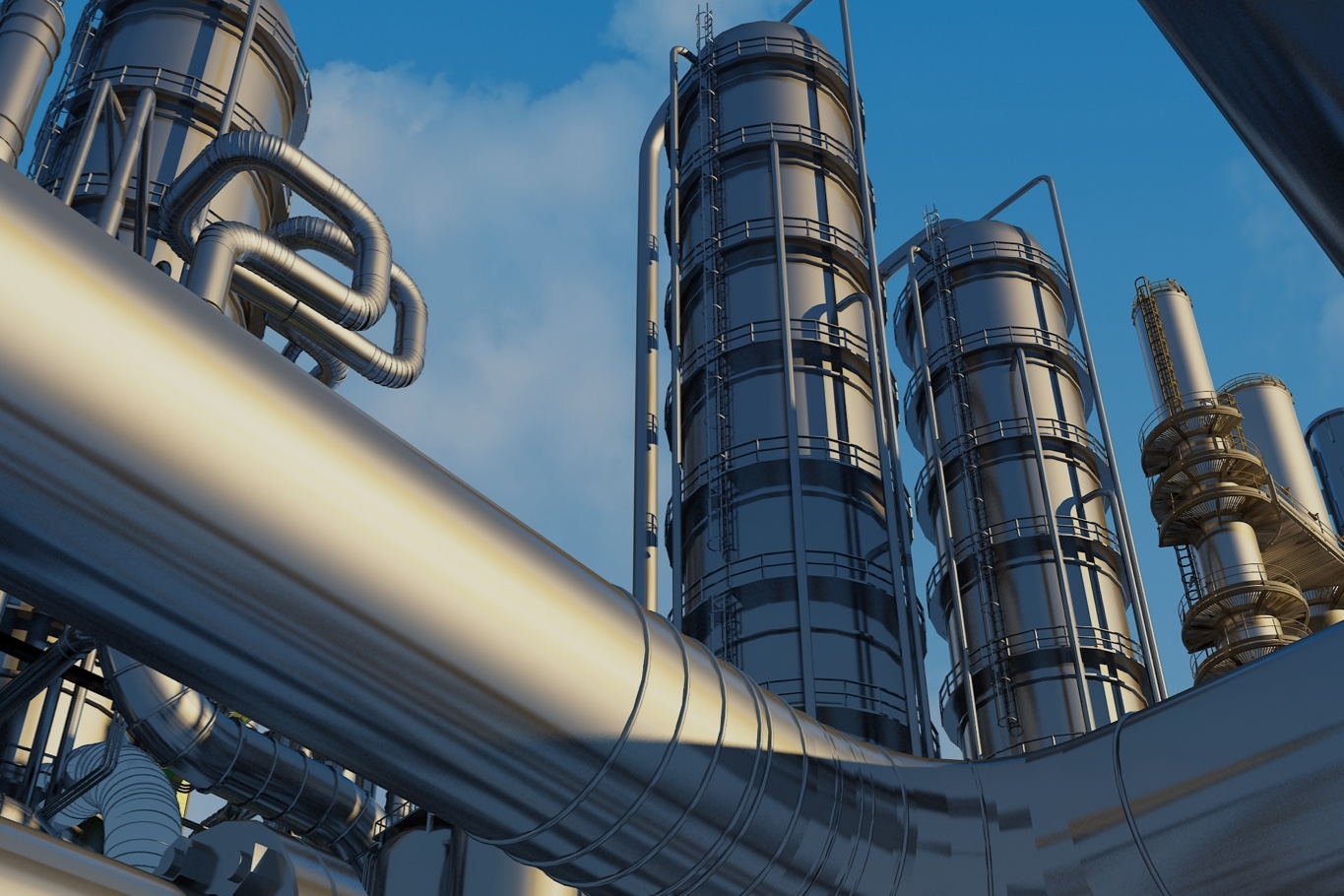
List of teaching laboratories linked to DEQ
 | Pilot Installations Laboratory Coordinator – Pedro Mendes PP-IST cover both research and academic activities, being the home of Chemical Engineering Labs, a 2nd year unit of the ChemE MSc course. PP-IST features a broad range of chemical engineering process setups at pilot scale, i.e. between lab and industrial scale. As a full fledge pilot plant, PP-IST is suitable for added-value (e.g. metal) components recovery (circular economy) and industrial effluent and wastewater treatment (zero waste). Individually, the setups cover the following operation units: liquid-liquid extraction (with a wide range of scales and stirring modes), liquid phase oxidation (photocatalytic and chemical), membrane filtration (ultrafiltration) and filtration by presses. Tecnhical manager: Remígio Machado |
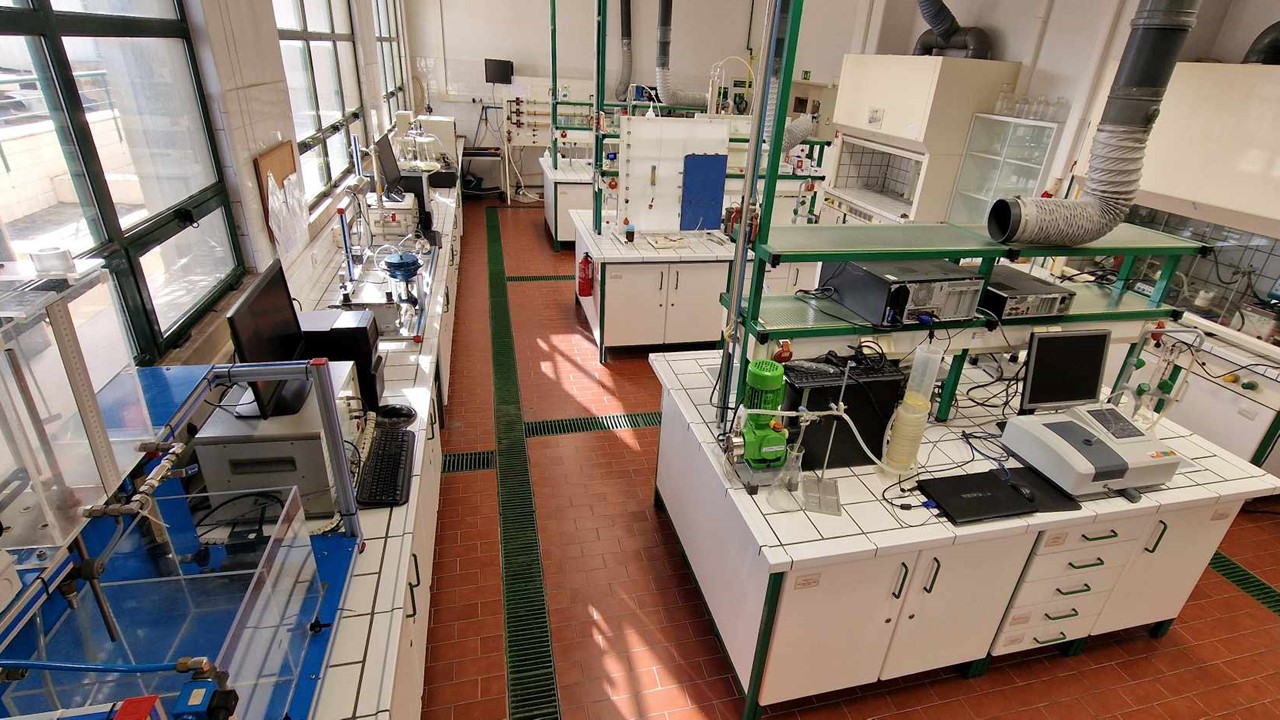 | Reaction Engineering Laboratory (LER) Coordinator – Alda Simões The Reaction Engineering Laboratory focuses on learning physical-chemical processes with a technological edge. This is the case with the courses on operations in multiphase systems (elutriation, fluidization and flow in porous beds), kinetics of homogeneous reactions (in continuous reactors with stirring or in tubular reactors), process control (level and pressure control), synthesis of catalysts (zeolites) or atomization. There are more than 10 projects running every semester. In addition to Chemical Engineering students, this laboratory is also used by students from other courses, particularly Environmental Engineering. |
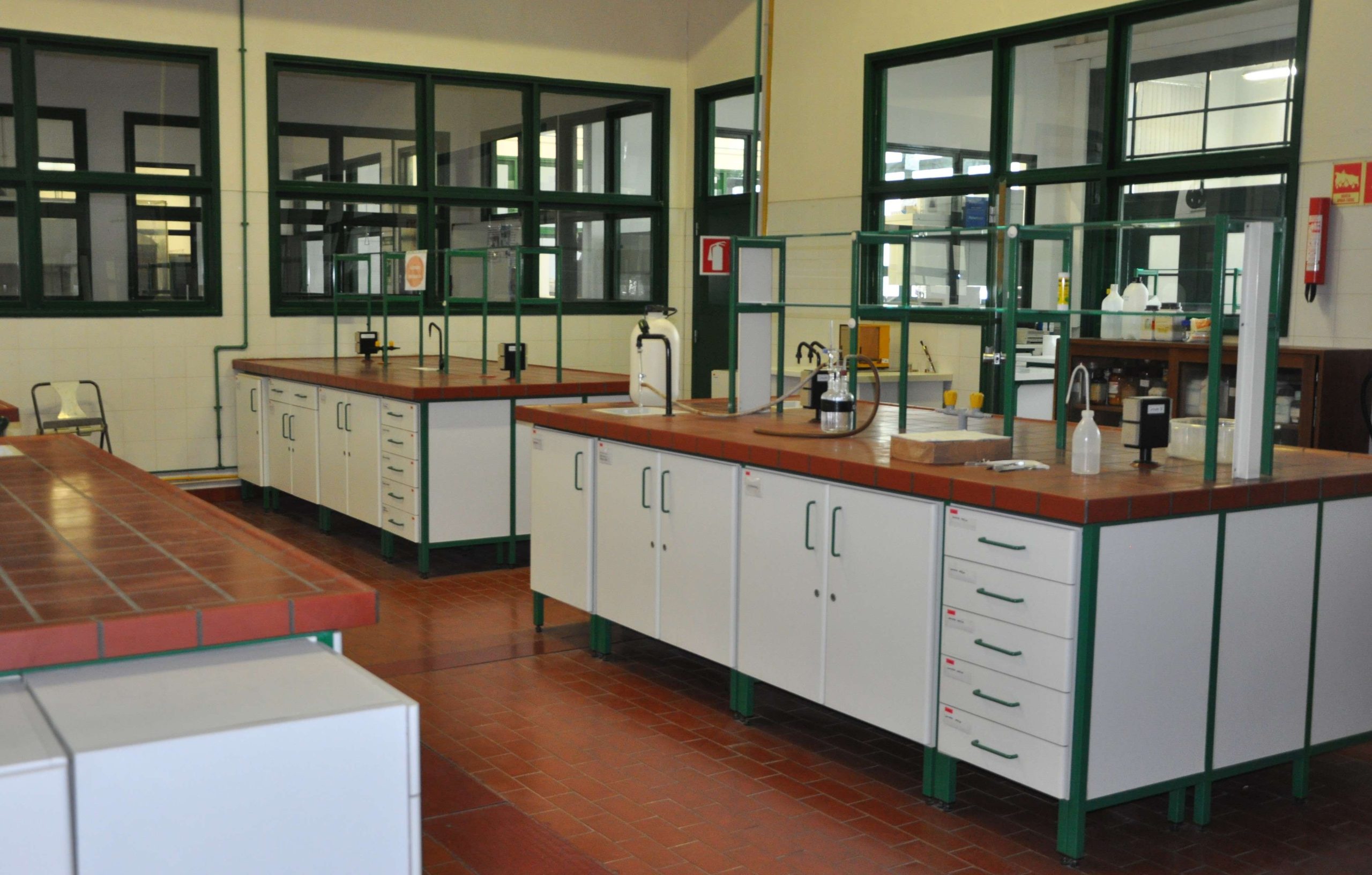 | Analytical Chemistry Laboratory (LQA) Coordinator – Sílvia Chaves The LQA has various equipment/techniques for analyzing samples: UV-Vis Absorption and Molecular Fluorescence, Flame Atomic Absorption and Emission, Potentiomentry with ion-selective electrodes, Partition High Efficiency Liquid Chromatography (UV detector and Diode Array), Ion Exchange High Efficiency Liquid Chromatography (anionic and cationic), Gas Chromatography (ionization and flame detectors, thermal conductivity) and sample digesters (microwaves, muffles, ultrasound). More |
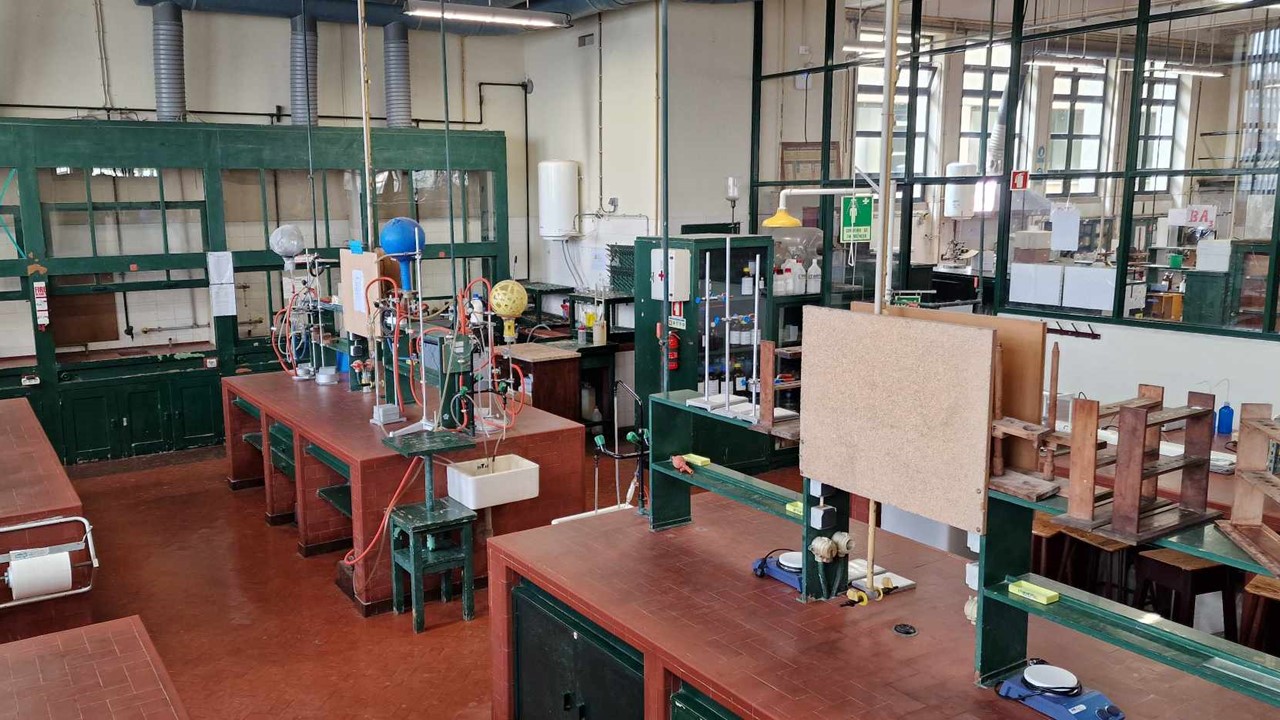 | Chemistry-Physics Laboratory (LQF) Coordinator – Carlos Baleizão At the LQF, laboratory classes are taught in the areas of chemistry-physics, thermodynamics, polymers and nanomaterials. The LQF's infrastructure is capable of carrying out macromolecule and nanomaterial synthesis and characterization activities. The LQF has equipment that allows students to apply theoretical concepts in areas such as UV-vis and infrared spectroscopy, surface tension, viscosity, etc. Through a "hands-on" concept, students are trained to be drivers of change and contribute to the societal challenges of the future in areas such as energy, health, industry 4.0, or the circular economy. |
 | Inorganic Chemistry Laboratory (LQI) Coordinator – Cristina Azevedo The LQI is a space where the 1st year LEQ laboratory classes in Chemistry I and EQS take place. It is located in the Chemistry pavilion. The work involves basic theoretical concepts, some of which the students already know and others which are new concepts introduced in the theoretical component of these courses. In particular, the preparation of rigorous and non-rigorous solutions, acid-base equilibrium and solubility equilibrium (titrations), electron transfer reactions (construction of galvanic cells) and chemical kinetics (study of the basic hydrolysis of crystal violet). The laboratory has the appropriate equipment to carry out this work, namely pH meters, UV/vis spectrophotometers, voltmeters and standard laboratory glassware. At the end of each assignment, students are expected to have developed their ability to observe and correlate the data obtained with a view to critically analyzing the results and conclusions. |
 | Organic Chemistry Laboratory (LQO) Coordinator – Ana Cristina Fernandes In the organic chemistry laboratory, students carry out experiments that cover important concepts and techniques in organic chemistry, including commonly used synthetic methods, purification and characterization of reaction products. For example, students extract and purify a natural product, (+)-limonene, from orange oil or synthesize a medicine, the painkiller phenacetin. The organic chemistry laboratory is equipped with various instruments needed for the synthesis, extraction and isolation of compounds, such as fume hoods, rotary evaporators, digital scales, magnetic stirrers, distillation apparatus, digital refractometer, polarimeter, digital melting point apparatus and infrared spectrophotometer. This laboratory also promotes scientific activities for secondary school students from various regions of the country, with the aim of students acquiring knowledge in the area of organic chemistry and talking to current teachers and students. |
 | Chemical Technology Laboratory (LTQ) Coordinator – Alda Simões The Chemical Technology Laboratory carries out work related to a range of essential tools in Chemical Engineering, such as Transfer Phenomena, Chemical Engineering Sciences, Thermodynamics, Separation Processes, and Industrial Services and Utilities. Around 20 experimental projects are carried out in this laboratory every year by students from the Chemical Engineering, Biological Engineering and Materials Engineering courses. |
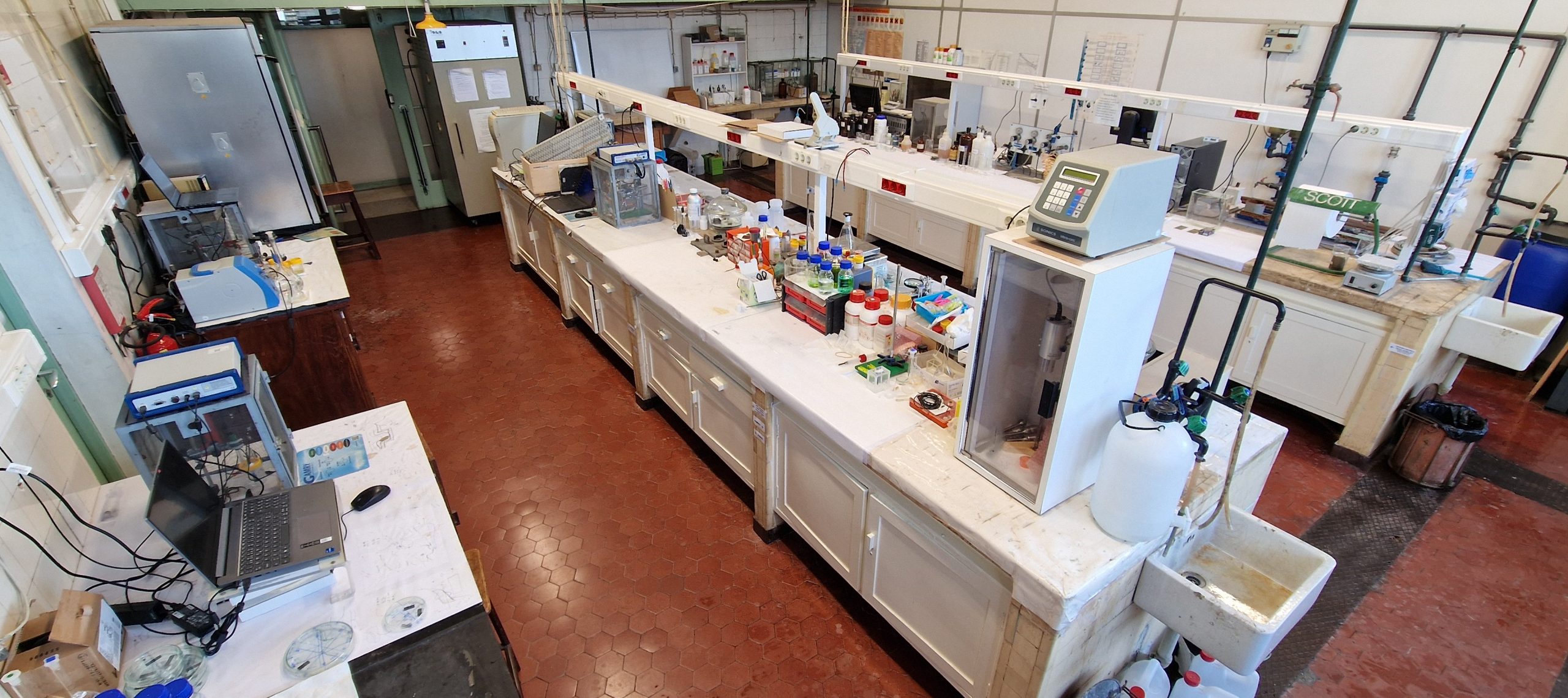 | Laboratório de Tecnologia Eletroquímica (LTE) Coordenador - João Salvador Fernandes In the Electrochemical Technology Laboratory, work is carried out to support the curricular units of Materials and Corrosion and Materials Protection (Degree in Chemical Engineering), Corrosion and Wear (Degree in Materials Engineering) and Surface and Coating Technology (Master's Degree in Materials Engineering). The work carried out includes Introduction to Corrosion Processes, Plotting E-pH Diagrams (Pourbaix Diagrams), Determining Corrosion Velocities and anti-corrosion protection techniques, such as the use of inhibitors, cathodic protection and coatings (electroplating and anodizing). The laboratory has equipment for carrying out a wide range of electrochemical measurements, applied to the areas of fundamental electrochemistry, corrosion and, more recently, energy storage systems, as well as techniques for preparing surfaces and coatings, which are widely used by 3rd cycle students. |
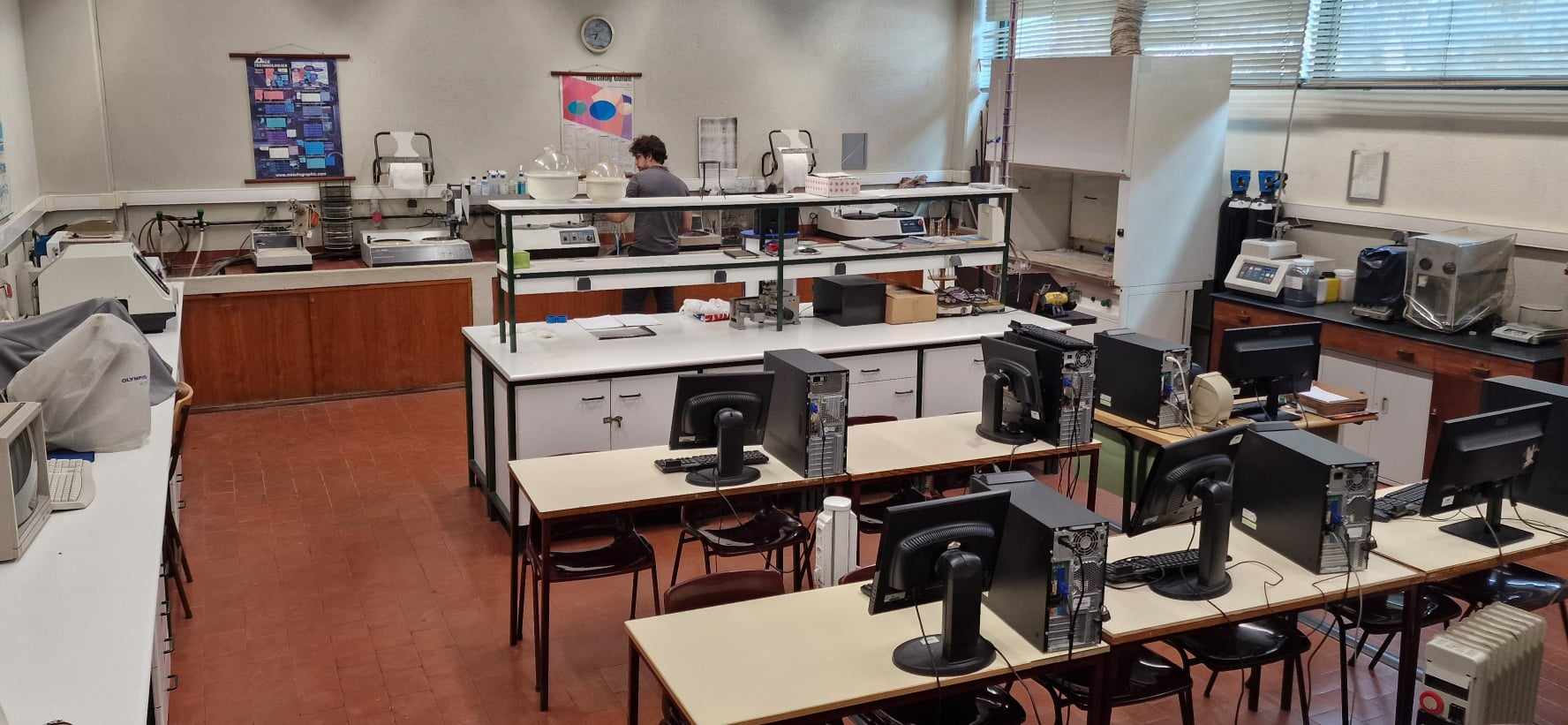 | Materials Engineering Laboratory (LEM) Coordinator – Amélia Almeida The Materials Engineering Laboratory supports all the teaching activities of various 1st, 2nd and 3rd cycle curricular units in the area of Materials Science and Engineering. The LEM is equipped with instruments that allow for the preparation of samples of various materials (cutting, mounting, grinding, polishing, contrasting), their morphological and microstructural analysis by optical microscopy with a digital acquisition system and image processing and analysis by UV/VIS spectrophotometry. There is also the capacity to carry out heat treatments (muffle furnaces and thermostatic baths) and hardness tests on various types of materials (Vickers, Shore, Rockwell). The laboratory is regularly used to carry out practical work as part of classes in various subjects, but also during free time, where students, mainly Master's and PhD students, can carry out their work with the support of the Laboratory Technician. |
| General Chemistry Laboratory Coordinators - Hermínio Diogo (Alameda); Adelino Galvão (TagusPark) The General Chemistry Laboratory's mission is to deepen and consolidate the knowledge conveyed in the theoretical classes of General Chemistry/Chemistry, taught in various Engineering courses at Alameda and TagusPark. In this space, students are encouraged to observe, experiment and understand the fundamentals of the chemical phenomena that underpin countless industrial, environmental and technological processes in the context of engineering. Each laboratory experiment is an opportunity to discover, in a practical and stimulating way, the principles that explain the behaviour of matter, from weight laws to chemical reactions, including acid-base equilibrium, solubility, and introductory notions of kinetics, thermodynamics, electrochemistry, corrosion and respective prevention and mitigation strategies. Equipped with basic instruments and materials suitable for experimental teaching, the laboratory offers a safe, dynamic and inspiring environment where essential skills such as accurate measurements, responsible handling of chemicals and rigorous interpretation of results are developed. More than just a space for laboratory practice, the General Chemistry Laboratory is also a space for discovery and reflection, where scientific curiosity, critical thinking and an exploratory attitude are encouraged, qualities that are indispensable for future graduates. The experiments carried out in this laboratory make an essential contribution to future engineers' deepening understanding of the chemical dimension underlying materials, processes and the environment, fostering professional practice guided by awareness, innovation and sustainability, combined with compliance with safety standards. |